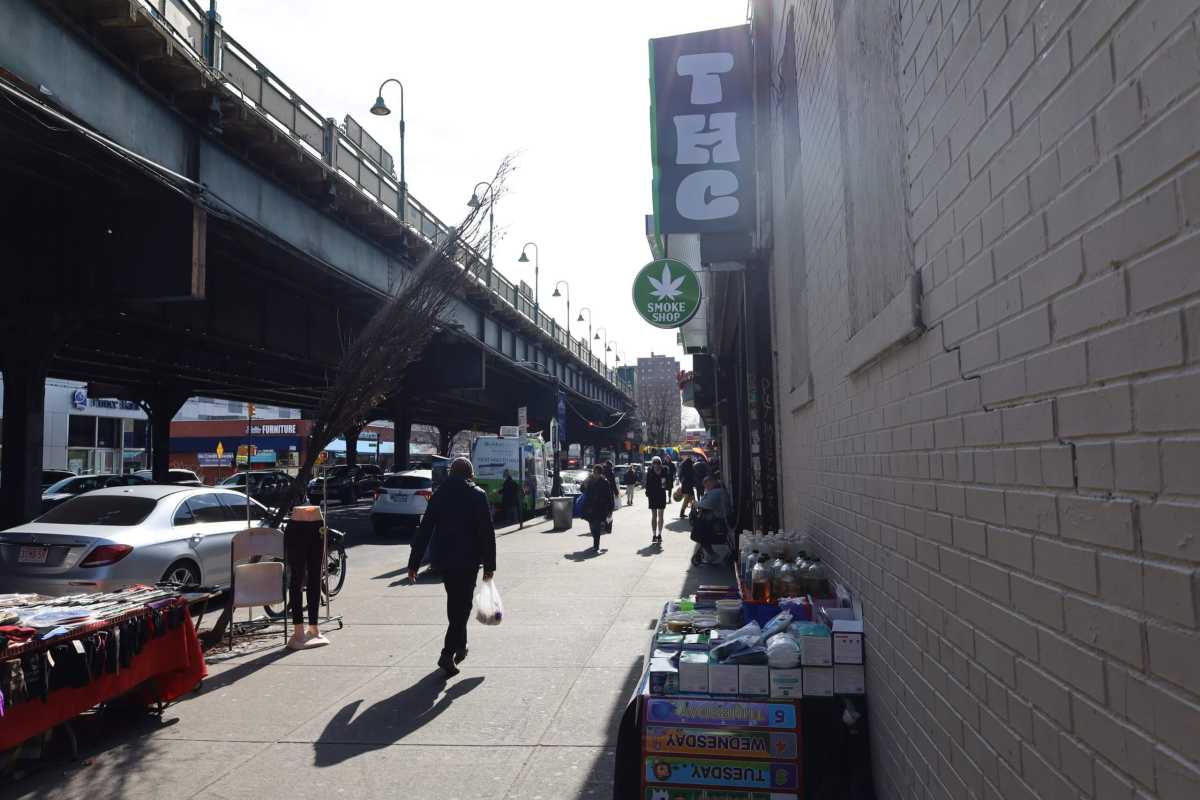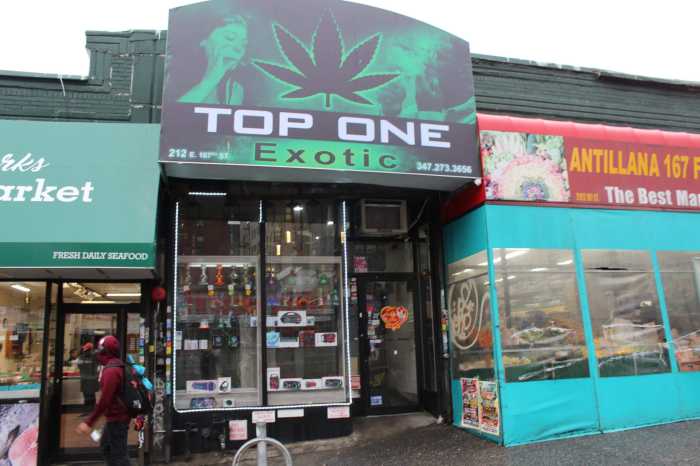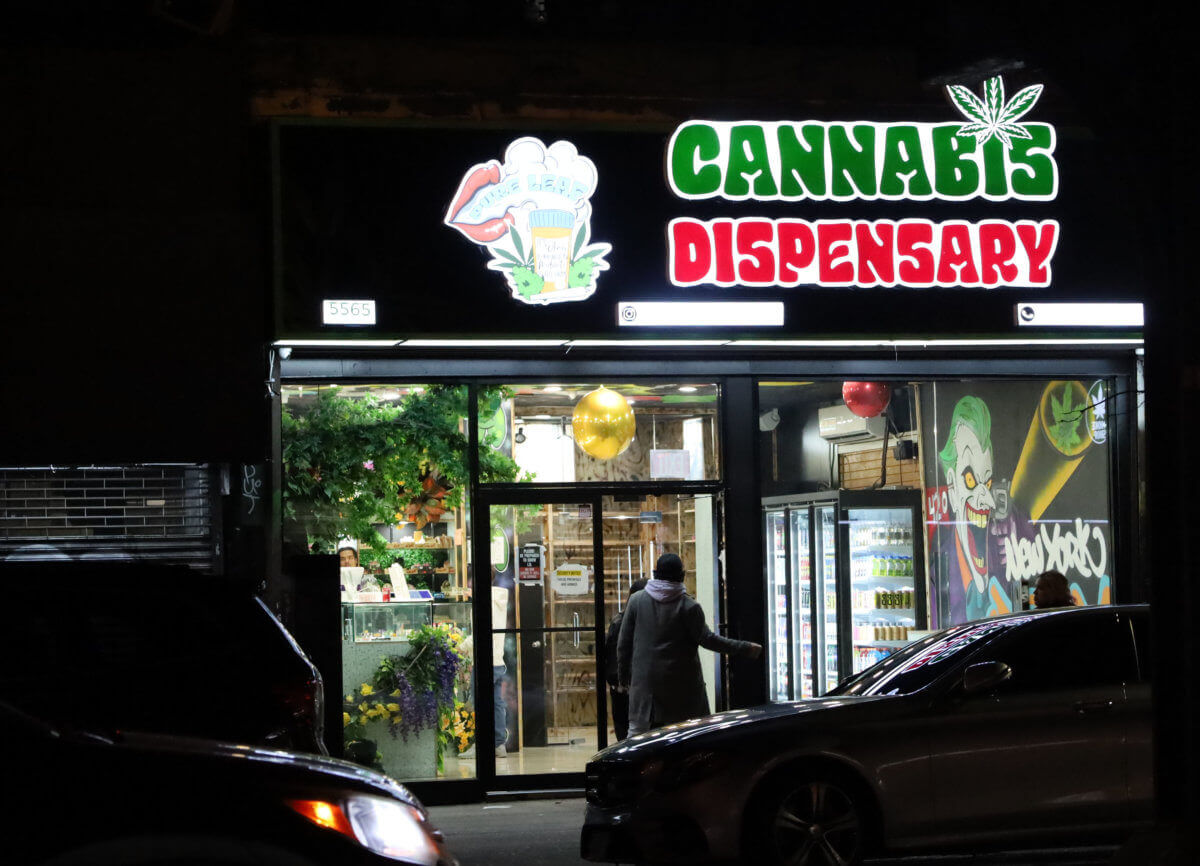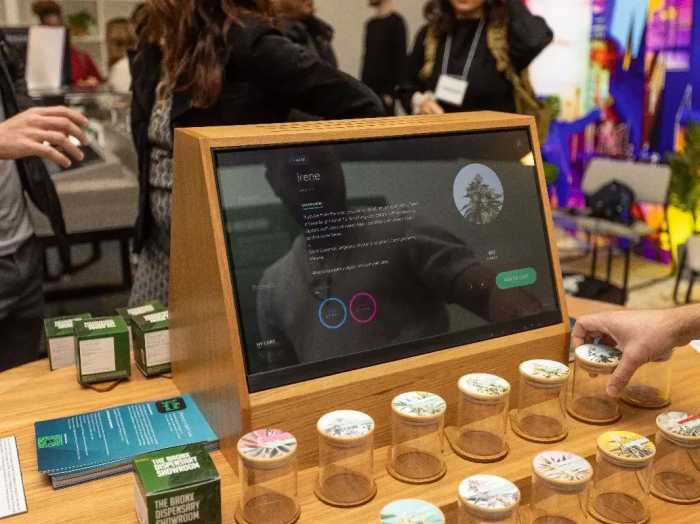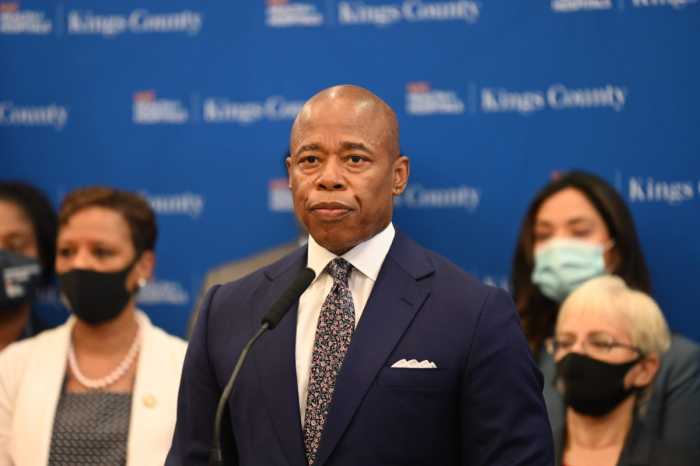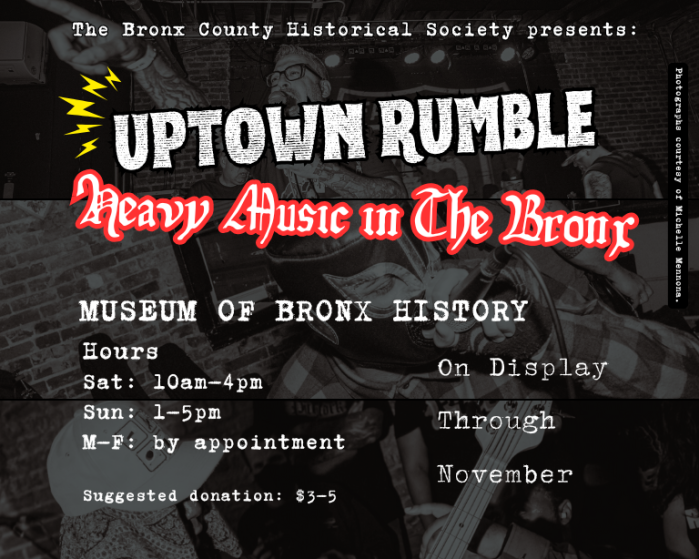Tanka Asongna-Morfaw and Dr. George Tabi Jr. grew up on opposite sides of the Bronx, but each witnessed the effect that over-policing and rampant enforcement of cannabis had on their borough.
A 2012 arrest for marijuana possession could’ve derailed Asongna-Morfaw’s prospects — a journey that led him to become a certified pharmacy technician and real estate broker. Instead, he and Tabi — the latter who started a CBD company with rapper Flo Rida in 2019 — are well-positioned to build a physical cannabis retail brand, Common Courtesy Dispensary, in the Bronx.
“This is full-circle,” said Asongna-Morfaw. “I got arrested for having such a small amount, but in a way it’s created this predicament where we can change the social stigma of cannabis, and also educate others on the health benefits of cannabis.”
Asonga-Morfaw is one of nine Bronx dispensary operators granted legal licenses earlier this week by the state Cannabis Control Board. However, months after the city opened its first dispensary in the East Village on Dec. 29, the Bronx is still without a single physical storefront.
As of April 6, 16 out of a possible 20 Bronx licenses have been granted.
Trivette Knowles, a public affairs officer at the state Office of Cannabis Management (OCM), told the Bronx Times in an interview Wednesday that the agency is doing what it can to ensure an equitable licensing process in the borough.
“I would say we are doing as much as possible,” Knowles said, noting that there are a lot of moving parts when it comes to the state-sanctioned cannabis market. “We have to do our part, which is licensing.”
For the Bronx’s Conditional-Adult Use Recreation Dispensary (CAURD) licensees, the road to a physical retail location has its roadblocks, such as examining vacant commercial spaces to operate, and ensuring that their business aligns with that area’s zoning requirements.
From the time of licensure, Knowles said, it generally takes a minimum of two or three months to actually open a dispensary. And even though businesses operate on their own timeline and not in accordance with the state, he said OCM understands that one of the most restrictive barriers is accruing the necessary capital to open a storefront.
One of the ways CAURD licensees can expedite their sales and get their businesses up and running, he said, is by implementing a delivery service — which the Cannabis Control Board approved last December. Knowles said this regulation is meant “to allow people to meet the demands of the cannabis consumer market” without having a storefront.
“It’s about asking what does an equitable cannabis role look like,” he said.
In recent weeks, Bronx cannabis activists and advocates have felt spurned by the state’s cannabis market rollout and the promise of the Marijuana Regulation and Taxation Act (MRTA) — which was signed into law in 2021 legalizing the recreational market — to prioritize communities most impacted by cannabis prohibition and enforcement.
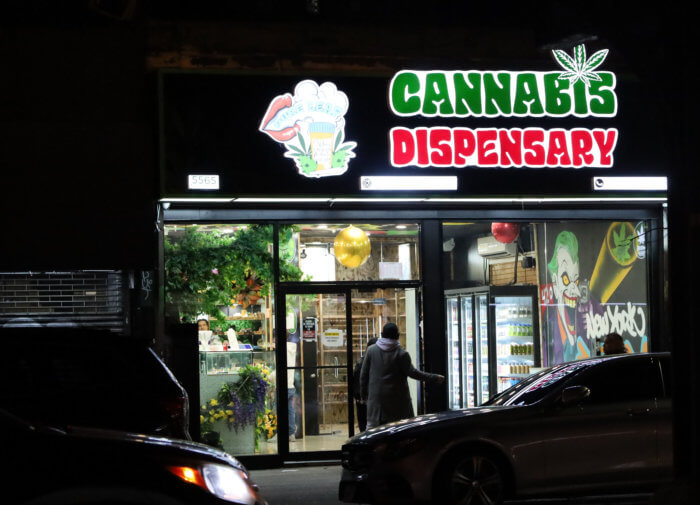
CannaBronx, among other cannabis advocacy groups, are calling on state lawmakers and Gov. Kathy Hochul to create capital, to the tune of $180 million in the state budget, and prioritize communities disproportionately impacted by the historic criminalization of cannabis.
“The New York cannabis movement is at a make-or-break moment. Currently, there is almost no support for the disparately impacted communities meant to launch the adult-use legal market, there is no public plan or clear timeline for investing in social equity, and the Legislature has allocated $0 for communities in the 2024 state budget,” said Kavita Pawria-Sanchez, civil rights attorney and CannaBronx CEO.
According to a decade-long study of marijuana arrests by NYC police precincts, the Bronx’s 46th, 41st, 52nd and 44th precincts accounted for some of the city’s highest marijuana arrest rates over the last 10 years.
Even post-decriminalization, 25% of marijuana-related arrests in New York City in 2020 occurred in the Bronx, according to CannaBronx.
“I’ve been arrested for marijuana possession around 30 times since I was 16 years old. When I first heard about the MRTA, I couldn’t believe the plant would be legal and that the law said that people like me get to go first,” said Bronxite Jason Morales. “New York made the law right and now they have to get it right by supporting people like me before big business comes in and takes over.”
Desmon Lewis is a co-founder of the Bronx Community Foundation, a nonprofit that supports and invests in local organizations that helps address issues of food and housing insecurity, as well as other systemic and institutional barriers in the borough.
The Bronx Community Foundation and Bronx Defenders — a nonprofit of attorneys and legal officials that represents low-income Bronxites in court — partnered to form the Bronx Cannabis Hub, which provides the public and business owners with educational resources and support upon their entrance into the legal marijuana landscape.
Lewis told the Bronx Times Wednesday that MRTA was drafted to right some of the wrongs the war on drugs had on particular underserved communities.

“Certainly the Bronx is that community,” he said. “Should the state be committing more capital? Absolutely.”
Through his work at the Bronx Community Foundation, Lewis said many of those looking for investment into the legal cannabis market are still struggling.
“People are frustrated and they’re waiting for some movement,” he said.
One of the misconceptions about CAURD licensure, Lewis noted, is that the primary application is the hard part. He said the ensuing work — understanding zoning laws and building compliance regulations, as well as negotiating lease agreements for dispensary storefronts — provides additional challenges.
“It’s about making sure communities like the Bronx are prioritized, and we haven’t seen a lot of that to date,” Lewis said.
He’s hoping that the Dormitory Authority of the State of New York — the state’s public finance and construction agency — will deliver on its goal to request $200 million from the state budget for its cannabis market-specific social equity program.
The state announced the first round of CAURD licenses back in November 2022, and said last month it would be doubling the amount of available retail permits moving forward.
Reach Robbie Sequeira at rsequeira@schnepsmedia.com or (718) 260-4599, and reach Camille Botello at cbotello@schnepsmedia.com or (718) 260-2535.
For more coverage, follow us on Twitter, Facebook and Instagram @bronxtimes

